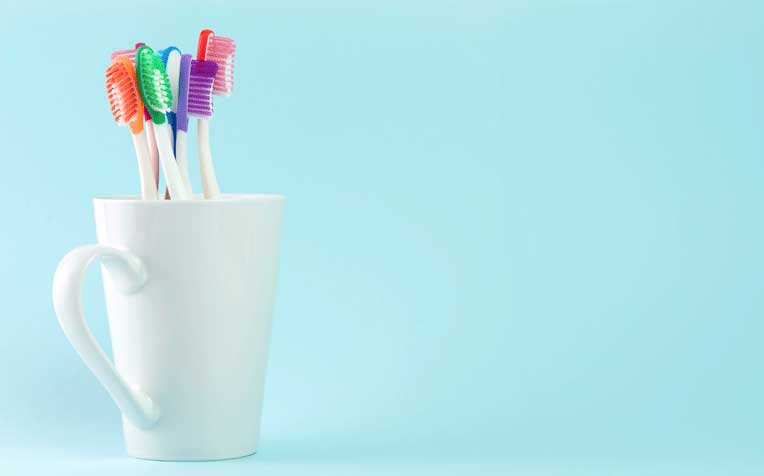
Toothbrush comes in a variety of shapes and sizes for different needs and preferences.
Watch the video!
Is picking the right toothbrush confusing?
Do you wonder whether an electric toothbrush is better than a manual toothbrush, or if soft bristles are more effective than hard bristles to remove plaque? With the vast array of options, choosing the best toothbrush is not always easy.
Ms Yap Xin Ying, Senior Oral Health Therapist, Department of Restorative Dentistry, National Dental Centre Singapore (NDCS), a member of the SingHealth group, says the quality of bristles and the size of the toothbrush head are important factors in choosing a toothbrush. She recommends the following:
Bristles: Choose a soft-bristled toothbrush which is the most comfortable, and the safest for both gums and teeth. A medium-bristled or hard-bristled toothbrush can cause irreversible damage to the gums and remove the protective enamel of teeth, particularly if you brush vigorously.
Toothbrush head: Choose a small or compact-head toothbrush which can reach hard-to-access areas such as the back of your teeth and the sides of your molars.
How to choose a toothbrush for a child
Children are advised to use a child-sized toothbrush as they have a small mouth. The handle in this toothbrush is thicker for a better grip and greater control. A rubber grip also enables firmer control of the toothbrush. A teenager can use an adult toothbrush.
How to choose a toothbrush if you wear braces or have misaligned teeth
If you wear braces, you can use a special orthodontic toothbrush that comes with V-shaped bristles. These bristles are designed to allow thorough cleaning around the wires and braces.
An end-tufted brush, which has a very small head with several tufts of nylon bristles, can also be used to clean around braces, misaligned teeth, exposed roots of molars, and dental bridges and implants. This brush should be used as an adjunct on top of normal brushing.
Electric toothbrush: Is it better than a manual toothbrush?
Studies have shown that there is no significant difference between a manual toothbrush and an electric toothbrush, and both are equally effective if used correctly. An electric toothbrush can be ineffective if it is used incorrectly.
However, an electric toothbrush may be more suitable in some circumstances, i.e. for people with limited dexterity, or those who find it difficult to use a manual toothbrush. “An electric toothbrush may be suitable for patients with severe rheumatoid arthritis, or those recovering from a stroke,” says Ms Yap.
An electric toothbrush is also better for people who tend to brush their teeth aggressively, which can harm the gums and teeth.
“Nowadays, some electric toothbrushes are built with pressure sensors. Whenever the sensor detects harsh exertions on the teeth, the appliance will pause automatically as a signal,” says Ms Yap.
Click on page 2 for tips on how to brush your teeth properly.
Ref: Q15
Check out our other articles on oral care:
Bad Breath: Causes and How to Keep It Away
Contributed by


















 Get it on Google Play
Get it on Google Play